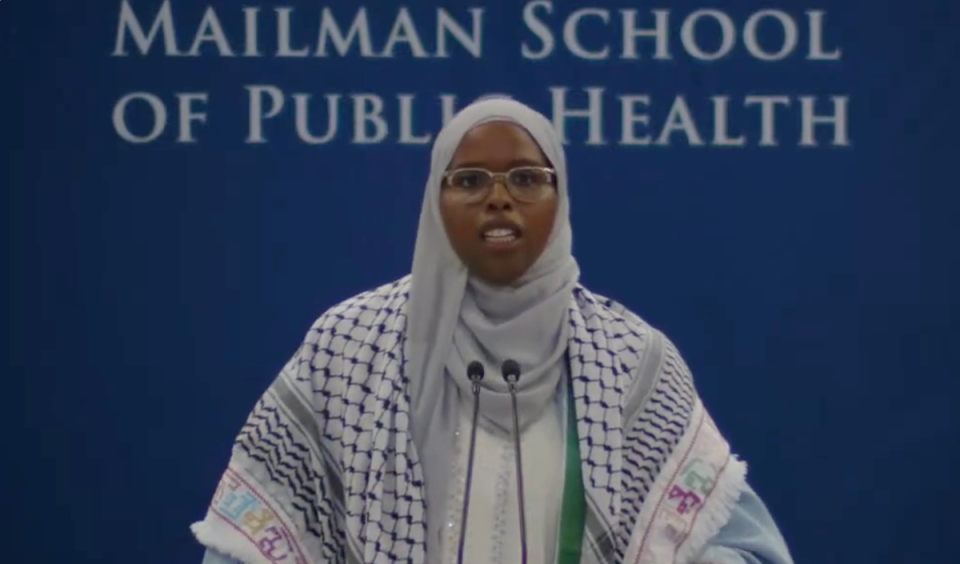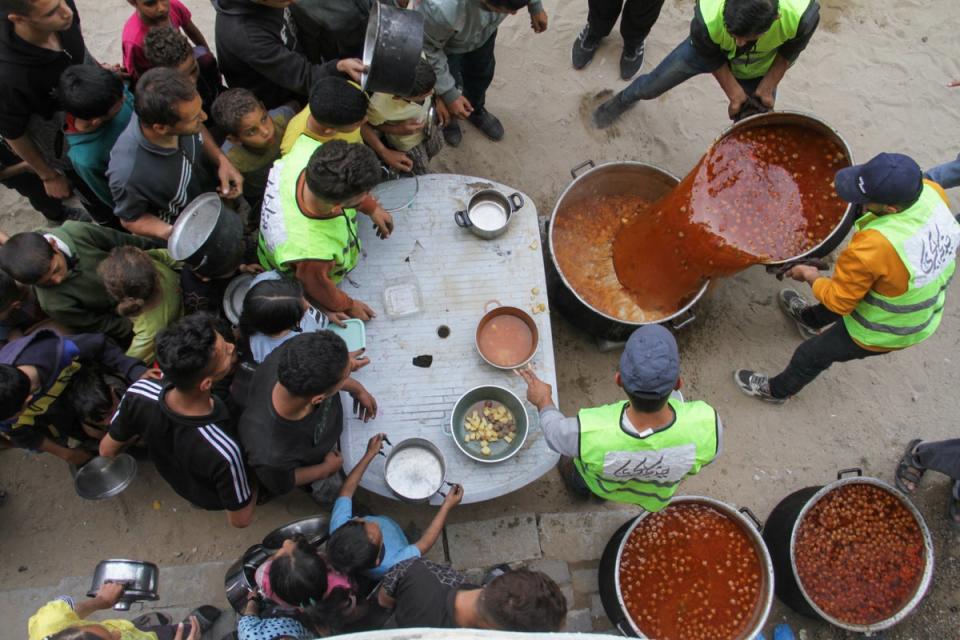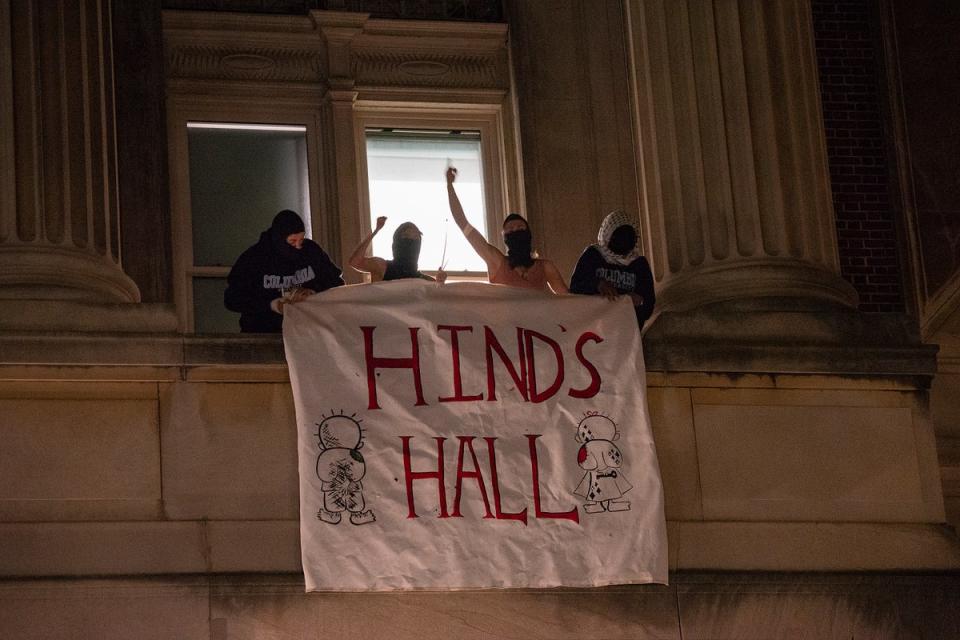Columbia students boo as graduation speaker’s mic cuts off when she starts to scolds college on Gaza
A Columbia University graduation speaker’s microphone briefly cut out as she criticised the school’s stance on Gaza this week.
At the Columbia University Mailman School of Public Health graduation ceremony on Tuesday, student Saham David Ahmed Ali gave a speech calling for the school to take action on Israel’s continued bombardment of Gaza.

However, minutes into her remarks, Ms Ali’s microphone began cutting out. A university spokesperson told The Independent the momentary loss of audio was due to an unintended technical glitch.
Ms Ali began to criticise the “silence on Columbia University’s campus” about Israel’s war in Gaza when her microphone appeared to glitch before turning off. The crowd booed as she took a brief pause.
She resumed her speech, but moments later the microphone cut out again. The crowd chanted: “Let her speak.”
After the second interruption, the microphone continued working and Ms Ali completed her speech.
Throughout the rest of her speech, Ms Ali called on Columbia to disclose their financial records and divest from institutions “profiting off of Palestinian genocide”. She also asked the school to call for an immediate and permanent ceasefire in Gaza.
Her call comes as Israel’s offensive in Gaza has killed at least 35,000 people, according to the Gaza Ministry of Health figures, most of them women and children. Israel’s attacks on Gaza come after 7 October, when Hamas launched a surprise attack on Israel, killing some 1,200 people and taking another 250 people hostage.
Now, Gaza is suffering a man-made famine, according to the United Nations and other international agencies. At least 32 people, 28 of whom were children, have died of malnutrition and dehydration in Gaza, according to Human Rights Watch.

Ms Ali gave her speech in the wake of Columbia University cancelling its commencement ceremony in the wake of anti-war protests on its campus. The college is only hosting school-specific graduation ceremonies after hundreds of protesters were arrested in April.
Protests against Israel’s war in Gaza began at Columbia on 17 April after school president Minouche Shafik testified to Congress about alleged antisemitism on the campus.
After protesters erected an encampment on school property, Ms Shafik called the New York Police Department to campus on 18 April. Officers arrested 109 protesters.
More than 100 additional protesters were arrested on 30 April after they occupied Columbia’s Hamilton Hall, renaming it “Hind’s Hall” in honour of a six-year-old Palestinian girl killed by Israeli tanks in Gaza.

Columbia’s protests sparked dozens of similar demonstrations on campuses across the US, resulting in thousands of arrests.
The public health student also called on the school to end expansion into the surrounding New York City neighbourhoods.
“Columbia University Apartheid Divest has been asking Columbia University for multiple things throughout this year,” Ms Ali told the audience. “Their asks include rights in Palestine and in Harlem and also in Washington Heights.”
Columbia University students have a long history of protesting against the school’s expansion in Harlem. In 1968, students protested against the university’s plan to construct a gym near Morningside Park, fighting against racist policies that would have dictated separate and unequal access to its facilities.
Criticisms of the school’s impact on the surrounding community continue, with students now arguing further expansion into Harlem displaces low-income residents in the neighbourhood.

 Yahoo News
Yahoo News 
